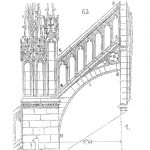
A common expectation consumers have concerning products is that the product works. The product provides value by performing one or more functions. Also, implicit with this expectation is the product will function over some duration. A reliable product meets or exceeds this common expectation.
Every product has a finite duration of successful operation before failure occurs.
Matching the products ability to last sufficiently long to expectations is one of many tasks facing product developers. Every product has the reliability attribute whether it is known or not. The management team determines the desired product reliability and the means to create a product that meets the reliability objective.
Reliability Management
Reliability management includes elements of leadership as well as the alignment of resources to achieve business objectives.
Business leaders set the organizations pace, tone, priorities, and decision criteria. This is done by actions managers take on a day-to-day basis and with formal policy or guidance documents.
The leadership team commonly establishes a product development lifecycle document that includes stages with reviews. Product reliability may or may not be explicitly discussed or reviewed in these guidance documents or meetings.
Senior management establishes the priority and importance of product reliability.
It is not possible to delegate this leadership role.
Reliability Decisions
Many members of the product development team have to make decisions that will impact product reliability.
If there is a lack of leadership, decisions may not include reliability considerations. Or, the decisions may over emphasize the importance of reliability. Left without reliability guidance the product will be designed and produced, and may or may not meet the customer’s reliability expectations.
During an assessment, I had the opportunity to individually interview two electrical engineers and their manager. I asked the first if they had a reliability goal. “Yes, it is 5,000 hours MTBF,” he replied quickly. I asked about what that goal means how it influences his design work. He replied that for this product the goal was very difficult to achieve. He talked about needing expensive parts, the best vendors, and careful testing.
The second engineer also knew the goal. When queried about how that influences his work he replied that that goal was easy to achieve. He used the least expensive parts, any vendor would work and there was little need for testing other than basic functionality. At this point, the interviews became a bit more interesting as both engineers were working on the same product.
The team manager also knew the reliability goal. At least that was consistent. She said that it was a meaningless goal since they didn’t measure it at any point during the development process.
All three worked on the same product and all three had different reactions to the knowledge of the reliability goal. One of the roles of a leader is to establish expectations.
A reliability goal for a product is one such expectation. By not also measuring the reliability performance the goal alone led to competing activities within the team and a lack of ability of the team to achieve the stated goal.
Key Role of Reliability Leadership
One of the key roles of company managers in any business is the allocation and alignment of resources. In product development teams the resources include design talent and money. It is money that often is the common denominator across an organization and that is the language of management. Talking about reliability in terms of money, or profit or warranty lets the management team understand the relatively importance and value of a reliable product.
The other primary factors of cost and time to market often translate directly to money. Product reliability takes an investment to avoid future product failures and associated costs. The team making the investment may not directly feel the impact of future product failures.
Related:
Leave a Reply